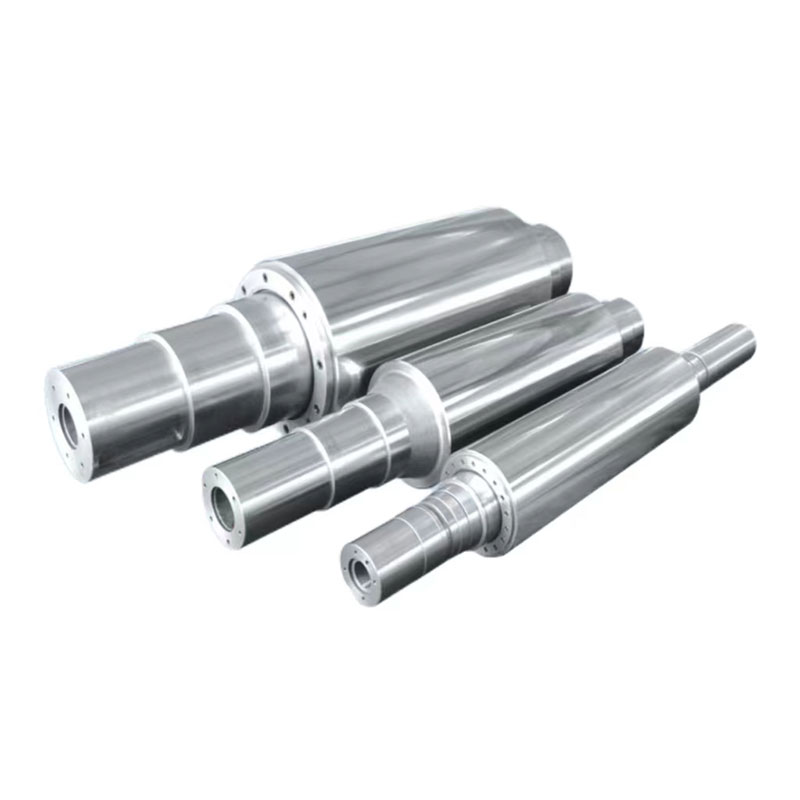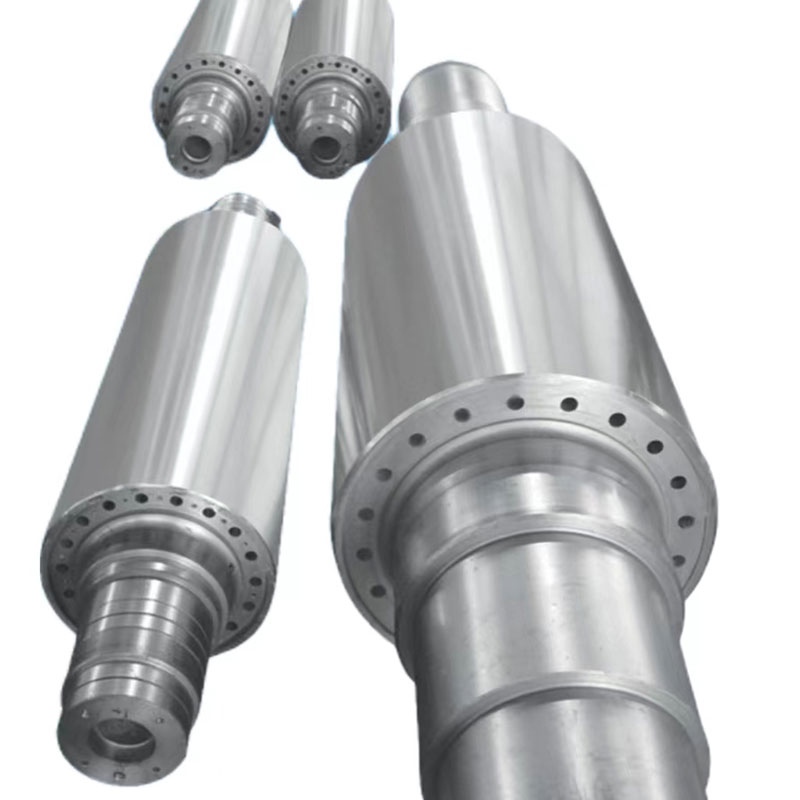Mixing, Calendaring or Refining Mill Roller
Advantages of our alloy rolls in mixing mills
- Wear resistance - Alloy rolls last longer than plain carbon steel or cast iron rolls. The use of alloys with components like chromium, nickel, molybdenum, etc. imparts better resistance to mechanical wear and corrosion.
- Consistent hardness - Special alloys can be cast with very consistent hardness throughout the roll body. This prevents uneven wear or soft spots from developing on the rolls.
- Higher strength - Alloys provide higher strength at elevated temperatures encountered during rubber milling. This allows higher nip pressures to be used.
- Dimensional stability - Alloy rolls maintain their shape and dimensions better under high loads compared to plain carbon steel. This ensures proper roller gap is maintained.
- Light weight - For a given strength, alloy rolls can be made lighter than steel rolls, reducing load on bearings.
- Better surface finish - Rolls made of alloy steels can be machined to very smooth surface finishes that help prevent rubber sticking to the rolls.
- Flexibility in properties - By varying alloying elements and heat treatment, properties like hardness, strength, wear resistance etc. can be customized.
- Lower maintenance - The superior performance of alloy rolls means lower replacement frequency and less downtime for roll maintenance.
- Higher productivity - The advantages of alloy rolls translate into the ability to produce more high quality rubber in a given time.
Main technical parameters
|
Model |
|
Model |
|
|
1 |
Φ710*2200 |
11 |
Φ400*1000 |
|
2 |
Φ660*2130 |
12 |
Φ400*1400 |
|
3 |
Φ610*2200 |
13 |
Φ246*1300 |
|
4 |
Φ610*1800 |
14 |
Φ380*1070 |
|
5 |
Φ610*800 |
15 |
Φ360*910 |
|
6 |
Φ600*1200 |
16 |
Φ320*950 |
|
7 |
Φ560*1700 |
17 |
Φ246*1300 |
|
8 |
Φ550*1500 |
18 |
Φ228*1080 |
|
9 |
Φ450*1400 |
19 |
Φ220*1300 |
|
10 |
Φ450*1200 |
20 |
Φ216*990 |
Product photos




Packing


Write your message here and send it to us




